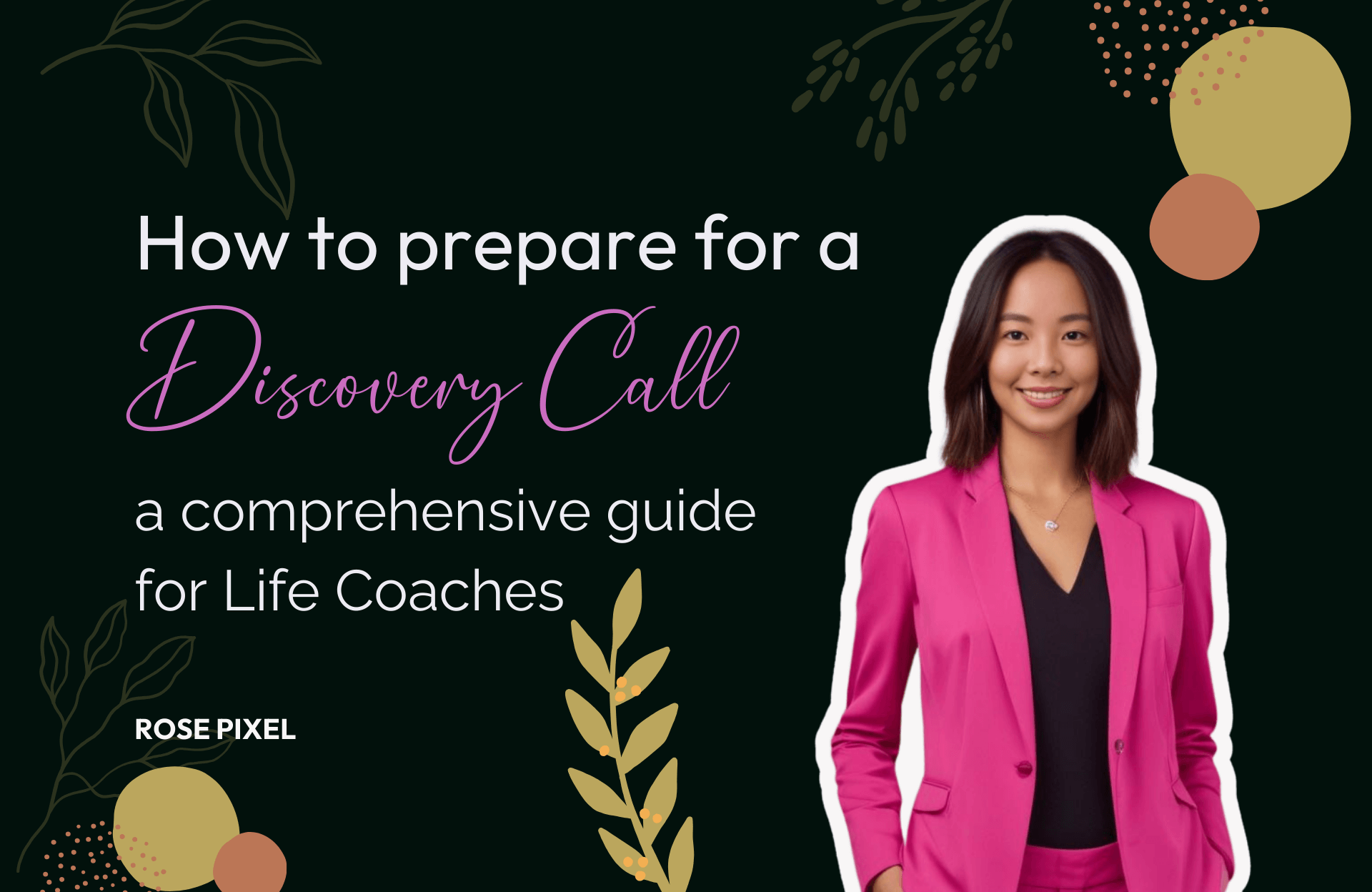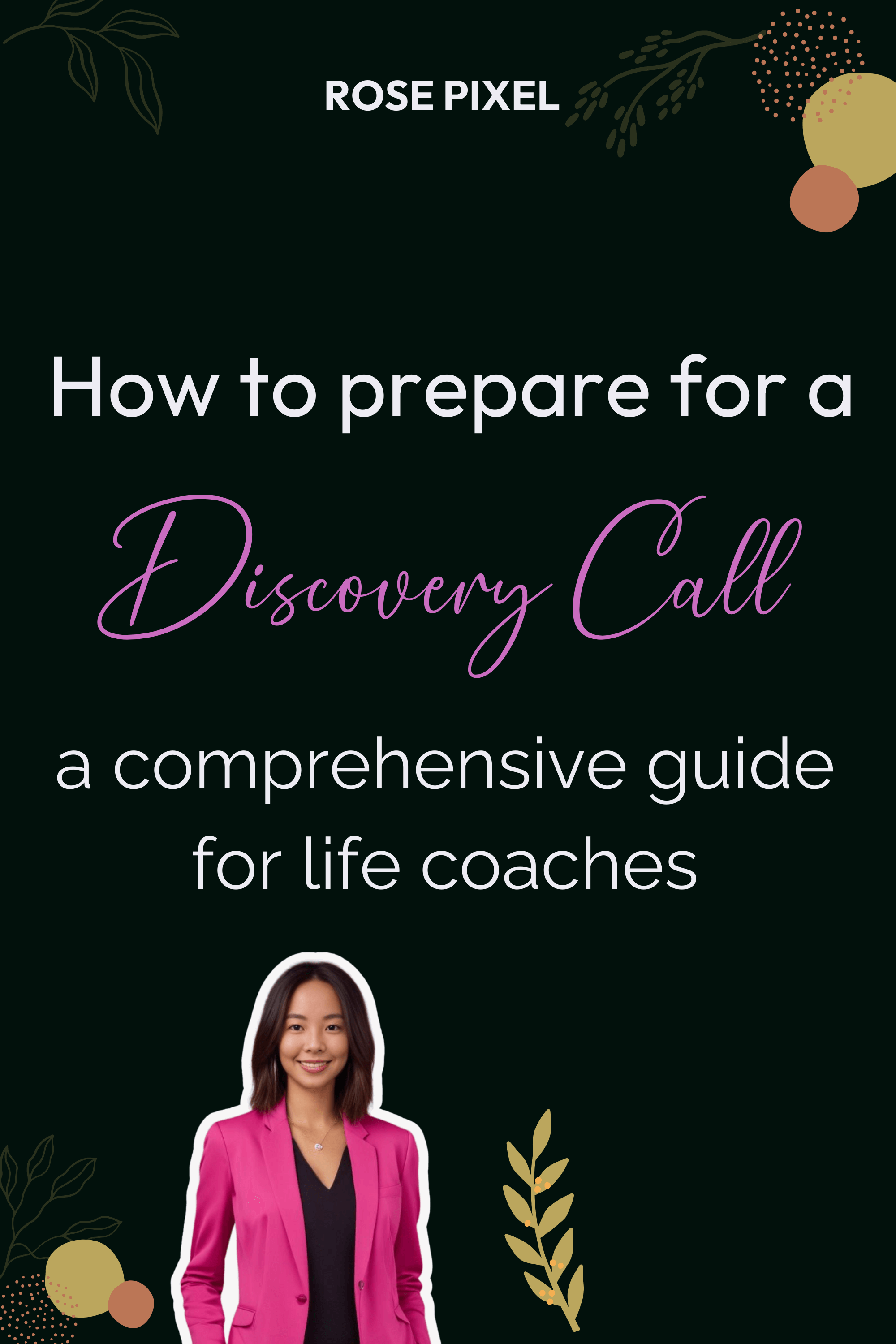The art of conducting effective discovery calls is essential for life coaches aiming to convert prospects into long-term clients. This comprehensive guide will explore the psychology behind first impressions, the importance of preparation, and advanced techniques to enhance your calls.
Table of Contents
- Key Aspects of Discovery Calls
- Building Your Discovery Call Toolkit
- Pre-Call Preparation: Setting the Foundation
- Structuring Your Discovery Call
- Advanced Rapport-Building Techniques
- Best Practices for Handling Objections
- Post-Call Excellence
- Measuring the Effectiveness of Your Discovery Calls
- Continuous Improvement Framework
Key Aspects of Discovery Calls
Discovery calls serve as a critical first step in establishing a relationship with potential clients. This initial conversation aims to uncover the client's needs, challenges, and goals, allowing both parties to assess whether they are a good fit for collaboration.
1. What to Avoid During a Discovery Call
- Focus on the Client: Ensure the conversation centers around the client's needs rather than your services. Avoid making it solely about yourself or pushing for a sale.
- Don’t Rush Solutions: Take the time to fully understand the client's problems before suggesting solutions.
2. Duration of the Call
Typically, discovery calls last between 15 to 30 minutes, though they may extend up to an hour for more complex discussions.
3. Discovery Call vs. Consultation
A discovery call is primarily an introductory conversation focused on fit assessment, while a consultation often involves providing more detailed advice or strategies.
4. Charging for Discovery Calls
Most discovery calls are offered for free to encourage initial interest; however, some professionals may charge to ensure they attract serious clients.
5. Cold Call vs. Discovery Call
Unlike cold calls, which are unsolicited and unexpected, discovery calls are pre-scheduled conversations where both parties express mutual interest.
Building Your Discovery Call Toolkit
Equip yourself with essential resources to enhance your coaching practice:
- Books: The Prosperous Coach by Steve Chandler and Rich Litvin, Coaching Questions by Tony Stoltzfus.
- Frameworks: ICF Core Competencies, GROW Model worksheet.
Pre-Call Preparation: Setting the Foundation
Internal Preparation
Take a moment to center yourself before each call. Mindfulness practices like meditation or deep breathing can help you focus and approach the conversation with clarity and empathy.
External Research
- Review all available client information.
- Examine their digital footprint, including LinkedIn and professional websites.
- Note any shared connections or experiences.
- Prepare personalized talking points to connect more meaningfully.
💡 Create a pre-call ritual to help you enter a focused, empathetic state. This might include deep breathing, reviewing notes, or setting a positive intention.
Structuring Your Discovery Call
Opening (5 minutes)
Start with warm authenticity. Acknowledge the courage it takes for clients to seek coaching. You might say:
"Thank you for making time to connect today. I know reaching out for coaching is a significant step."
Deep Dive (10-15 minutes)
The GROW model (Goals, Reality, Options, Way Forward) is a powerful framework that can improve the outcomes of discovery calls by:
- Clarifying Goals: Helping clients articulate what they want to achieve.
- Exploring Reality: Understanding their current situation and challenges.
- Identifying Options: Discussing potential paths forward.
- Establishing Next Steps: Creating a clear action plan that encourages commitment.
Using this model not only structures the conversation but also empowers clients by focusing on their aspirations and obstacles. For more information on the GROW model, you can refer to Coaching Tools.
Use the GROW model (Goals, Reality, Options, Way Forward) to guide your questions. Here are powerful questions to uncover meaningful insights:
- "What would make this conversation meaningful for you today?"
- "When you envision your ideal future, what does that look like?"
- "What's standing between you and that vision?"
Wrapping Up (10-15 minutes)
- Summarize key insights gathered during the call.
- Present relevant coaching options.
- Discuss clear next steps with the client.
Advanced Rapport-Building Techniques
Key Findings on Effective Communication
According to research by Albert Mehrabian:
- 7% of communication is verbal
- 38% is vocal (tone, pace, volume)
- 55% is visual/non-verbal
Practical Application
On video calls, enhance engagement by:
- Maintaining appropriate eye contact.
- Using subtle nodding and mirroring gestures.
- Matching your client's energy level.
- Speaking with varied tone and pace to create a dynamic, engaging conversation.
Building Rapport
- Active Listening: Demonstrate genuine interest in what the prospect is saying by paraphrasing their points and asking follow-up questions.
- Empathy: Share relatable experiences or acknowledge their feelings to create a connection.
- Non-Verbal Cues: Pay attention to body language and maintain appropriate eye contact during video calls to show engagement.
- Personalization: Tailor your conversation based on prior research about the prospect’s background and interests, which can significantly enhance rapport.
Best Practices for Handling Objections
Handling objections gracefully can turn potential roadblocks into opportunities for deeper connection. Here are best practices:
- Acknowledge Concerns: Use phrases like "I understand how you feel" to validate their concerns.
- Share Similar Experiences: Mention how other clients have faced similar issues and found solutions.
- Focus on Solutions: Redirect the conversation toward how your coaching can address their specific objections.
This approach fosters trust and demonstrates your commitment to their success. For more strategies on handling objections, check out this article from Mind Tools.
Post-Call Excellence
Within 24 hours of the call:
- Send a personalized follow-up, expressing gratitude for their time.
- Include key insights and takeaways from your conversation.
- Outline clear next steps and any promised resources or materials.
Measuring the Effectiveness of Your Discovery Calls
To evaluate the success of your discovery calls, consider tracking the following key performance indicators (KPIs):
- Conversion Rates: Measure the percentage of discovery calls that lead to follow-up meetings or proposals. A higher conversion rate indicates effective calls.
- Call Duration: Analyze the average length of your calls; longer conversations may suggest deeper engagement, while shorter ones might indicate missed opportunities.
- Engagement Levels: Assess how actively prospects participate during the call. High levels of engagement typically signify a successful interaction.
Utilizing tools like a discovery call scorecard can also help assess various aspects of your calls, providing structured feedback on strengths and areas for improvement.
Continuous Improvement Framework
Track key success metrics to refine your approach:
- Conversion rate
- Client satisfaction scores
- Common objections
- Average call duration
Review recordings of your calls (with permission) to assess:
- Question quality
- Listening ratio (aim for 80% listening, 20% speaking)
- Empathy indicators
- Solution relevance







